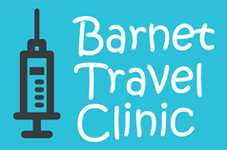Background to Zika Virus Infection
Zika virus (ZIKV) was first identifed in April 1947, when fever developed in a research rhesus monkey in the Zika Forest of Uganda.
The first well-documented report of human ZIKV infection occurred in 1964, and since then the virus has been identified in humans in countries including: Central African Republic, Egypt, Gabon, Nigeria, Senegal, Sierra Leone, Tanzania, Uganda, India, Indonesia, Malaysia, the Philippines, Thailand and Vietnam.
In 2007, an outbreak of ZIKV occurred on Yap Island in the Federated States of Micronesia. This was the first time that ZIKV was reported outwith Africa and Asia. In October 2013, a large outbreak occurred in French Polynesia, followed by other outbreaks in the Pacific islands of New Caledonia, Cook Islands and Easter Island.
In 2015, cases of ZIKV were reported in several Caribbean Islands and Brazil, progressing to an outbreak that spread to the Americas. The outbreak has continued in 2016, with ZIKV reported in an increasing number of countries.
- For an updated list of ZIKV affected countries refer to ECDC List of affected Countries
Of particular concern is the possibility of a link between ZIKV infection in pregnancy, and the increase in number of birth defects being recorded in Brazil, notably babies being born with microcephaly (smaller than normal head).
- Precautionary measures to reduce the risk for pregnant women are recommended as further evidence is gathered.
There also appears to be an association between ZIKV outbreaks and the occurrence of Guillain-Barré syndrome (GBS), a serious condition of the nervous system. The risk of developing GBS following ZIKV infection is currently unknown, but thought to be very low.
Transmission
ZIKV is related to dengue, Japanese encephalitis, yellow fever and West Nile virus. The virus is spread by the aedes species of mosquito including the Aedes aegypti mosquito which predominantly bites during the day.
There have been some reports of ZIKV probably being transmitted sexually. ZIKV has also been found in semen two months after illness, it is not known how long it may persist in semen, or if this occurs in all infected men.
The Illness
Most people infected with ZIKV will have only very mild, or no symptoms. Symptoms usually start 2-12 days after the bite of an infected mosquito and last for 4-7 days. They include: mild fever, headache, red eyes, rash, muscle and joint pains. Other less common symptoms include: loss of appetite, diarrhoea, constipation, abdominal pain and dizziness.
Treatment
There is no specific treatment for ZIKV infection available. Most people will get better without any treatment. Symptoms like headache and fever can be treated symptomatically. Hospital care is indicated in severe illnesses or if complications arise.
Recommendations for travellers
There is no medicine or vaccine available that prevents ZIKV infection. The most effective/important way to avoid infection is to prevent mosquito bites by using insect repellents and wearing appropriate clothing.
Until the link between ZIKV and birth defects and the possibility of sexual transmission has been established, travellers planning to visit countries affected by ZIKV should take the following precautions:
All Travellers
- Are advised to seek travel advice from a health care provider at least 6-8 weeks in advance of travel, butparticularly important if you are pregnant or planning pregnancy.
- Mosquito bite avoidance is strongly recommended. The mosquitoes which transmit ZIKV are particularly persistent and aggressive biters. HPS recommends DEET(diethyltoluamide) based insect repellents at a concentration of 50%, which should be applied regularly according to manufacturers instructions. DEET up to 50% is safe for use in pregnancy. If DEET is unsuitable then another, proven alternative should be used. However, few repellents are as effective as DEET.
- Wearing loose, cover-up clothing is recommended. Items of clothing can also be treated to repel mosquitoes.
- Insecticide-impregnated bed nets and air conditioning should be used in bedrooms. Reduction of mosquito breeding sites around hotel rooms/homes is advised for longer-term stays.
- Are strongly advised not to travel without adequate insurance – pregnant women should check with their travel insurance company that they are covered under the policy.
Women who are Pregnant
- Are advised to postpone non-essential travel to countries with active ZIKV transmission until the proposed link between ZIKV and adverse pregnancy outcomes has been fully clarified.
- If travel is essential, they should be helped to understand the risks in order to make a fully informed decision.
- During travel, practice strict bite avoidance.
- Should abstain, or use barrier methods to reduce the risk of sexual transmission of ZIKV from a male partner(s) during travel and throughout their pregnancy.
- On return home, should arrange an early obstetric review, even if well.
Women who are NOT Pregnant
- Should avoid becoming pregnant during travel and for 28 days on return home.
- The British Fertility Society have released guidance for those considering or undergoing fertility treatment who may have been or will be travelling to regions affected by Zika virus.
Men travelling to affected areas
- Should abstain, or use barrier contraception during travel to reduce the risk of sexual transmission of ZIKV, and unplanned pregnancy:
- for 28 days after travel (if they had no symptoms of ZIKV infection) and their partner(s) are not pregnant
- for 6 months after travel (if they had symptoms of ZIKV infection) and their partner(s) are not pregnant
- for the duration of their partner(s) pregnancy.
On Return
Medical attention must be sought quickly for any feverish illness experienced whilst travelling or on return home. Remember that other travel related hazards, including malaria, may be present in ZIKV affected countries, and can be serious, particularly if you are pregnant.
Travellers returning from countries affected by ZIKV cannot donate blood for 4 weeks after return if they have had no symptoms, or 6 months if they have had symptoms of ZIKV infection.
